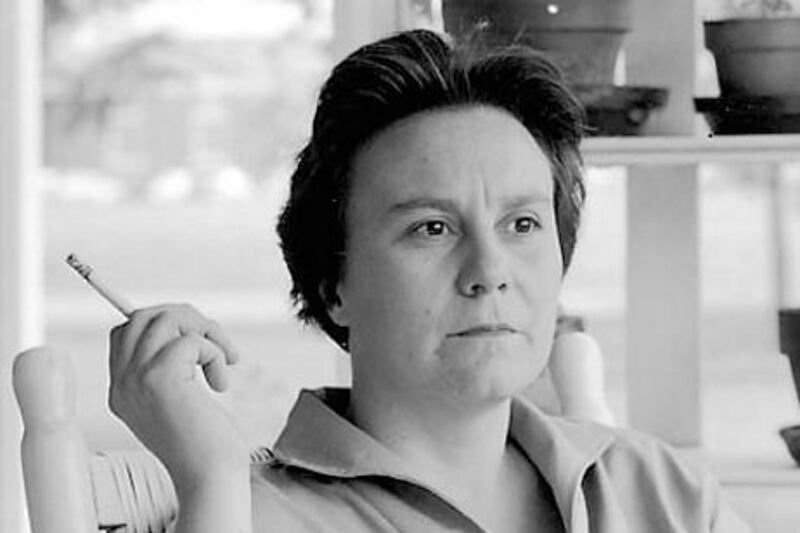Finally, it seemed, one of the most enduring literary mysteries would be solved. At last, we would discover why Harper Lee had not written another book since 1960's To Kill a Mockingbird, and what had made her become one of literature's greatest recluses.
Penguin Press announced this week that it had bought the former Chicago Tribune journalist Marja Mills's memoir The Mockingbird Next Door: Life With Harper Lee. The book would tell of the Lee sisters' lives in Alabama, how the staggering success of To Kill a Mockingbird affected their lives and, as the press release intriguingly put it, "why Harper Lee chose to never write another novel".
But the most exciting news was that the book, currently without a publication date, was "written with direct access to Harper and Alice Lee and their friends and family". The literati licked their lips. Perhaps it would confirm that Lee was crippled by writer's block. Maybe – as one cruel rumour once scurrilously put it – she would reveal that her best friend Truman Capote had actually written To Kill a Mockingbird.
Or maybe, indeed, it would suggest that she just couldn't be bothered trying to improve on perfection. After all, a 2002 interview Mills had with her sister for the Chicago Tribune did suggest there might be something in that theory. "I'll put it this way," she said. "When you have hit the pinnacle, how would you feel about writing more? Would you feel like you're competing with yourself?"
But as always, where Harper Lee’s much-prized privacy is concerned, there was a problem. Lee, it seemed, had not had an audience with Mills at all, and she was not slow to tell the world just that. “Contrary to recent news reports, I have not willingly participated in any book written or to be written by Marja Mills,” Lee wrote in a statement published by her lawyers on Wednesday. “Neither have I authorised such a book. Any claims otherwise are false.”
And, from someone who hasn't granted an interview since 1964 – "it's better to be silent than be a fool", she once said at a low-key Alabama awards ceremony – that was quite a verbose statement. It wasn't the end of the affair, though. On Friday, Mills told The New York Times that she had a document signed by Alice Lee "affirming she and her sister, Nelle Harper Lee, cooperated with the project".
Whatever the truth of the matter, the reason we’re fascinated by Harper Lee is not just that she keeps her counsel. It’s that such a talent never managed to follow up the Pulitzer Prize-winning chronicle of racial tensions in the American South.
She tried – The Long Goodbye was started and abandoned in the mid-1960s – and she certainly suggested, back in the days when she was just a little more talkative, that she wasn't intending to be a one-hit wonder. "I want to do the best I can with the talent God gave me," she said to Roy Newquist for his 1964 book of interviews, Counterpoint, before adding: "I hope to goodness that every novel I do gets better and better… all I want to be is the Jane Austen of south Alabama."
Instead, she's become the JD Salinger of south Alabama – another, albeit slightly more productive, American author who wrote the hugely acclaimed novel The Catcher in the Rye before retreating into obstinate seclusion. Not that there's necessarily anything wrong with producing a solitary classic novel and refusing to diminish its power and legacy with inferior follow-ups. Lee is in good company as far as that's concerned: ignore the novella she scribbled as a 15-year-old, and Margaret Mitchell wrote only the epic Gone With the Wind. Oscar Wilde wrote plays, poems and short stories but only one novel, the fascinating The Picture of Dorian Gray. Emily Brontë's sole contribution to fiction was Wuthering Heights and Boris Pasternak's Dr Zhivago remains his first and last book.
Granted, some of these authors' careers were cut short by death, but it's Margaret Mitchell's reaction to her bestseller that gives us a window into Lee's feelings about her life post-Mockingbird. Mitchell said she hated the fame her novel and the subsequent film brought her, and in that 1964 interview Lee likened the immediate success of her book to "being hit over the head and knocked out cold". She admitted that she wouldn't have minded some public praise, but "I got rather a whole lot, and in some ways this was just about as frightening as the quick, merciful death I'd expected".
So, like Salinger, Lee has become just as famous for her much-documented silence as her novel. The book, of course, will last: but it’ll be a real shame if we only really find out what really drove this brilliant writer once she’s dead.
Follow us on Twitter and keep up to date with the latest in arts and lifestyle news at twitter.com/LifeNationalUAE






